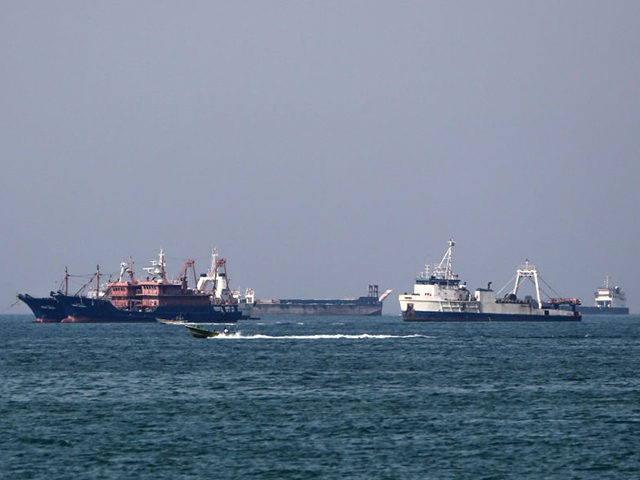Iranian officials are warning that U.S. sanctions pressure may soon force the regime to shut down its international media operations, such as PressTV, Arabic iFilm, and Al-Alam.
Historian Daniel Pipes, a dedicated critic of Islamism and Iran’s theocratic regime, took the news as a “great success” for the Trump administration’s “maximum pressure” campaign:
US “maximum pressure” vs #Iran's dictatorship is a great success.
For example, the head of its media service announced that @PressTV (its English news channel) & @AlAlam_channel (same in Arabic) will be "taken off the air in the days or weeks to come.” https://t.co/dkeWyNVBsM
— Daniel Pipes دانيال بايبس (@DanielPipes) June 11, 2020
The Jerusalem Post on Friday confirmed that Iranian officials are talking about losing satellite access for their international programming in a matter of “days and weeks.” PressTV, in particular, would be an embarrassing loss for the regime, as it provides Iran’s primary English-language propaganda network.
The Sydney Morning Herald reported a major setback for PressTV last week when Facebook began labeling it as “state-controlled media,” along with similar operations in Russia and China. Facebook announced it will begin blocking advertising from state media later this summer.
YouTube deleted PressTV’s U.K. channel in January after the Times of London documented how it was spreading “pro-Tehran, anti-Israeli propaganda.” Ironically, that propaganda currently includes loud assertions that U.S. sanctions are hurting America far more than Iran.
Radio Farda noted on Wednesday Iran’s Radio Dari service and Al-Kowsar television network have already been shuttered due to unpaid debts to their satellite providers.
Payman Jebelli, head of external services for Islamic Republic of Iran Broadcasting (IRIB) and the source of the gloomy quote highlighted by Pipes, blamed the perilous state of Iran’s foreign media operations on “negligence” from the administration of President Hassan Rouhani.
According to Jebelli, Rouhani and his officials have refused to allocate any of Iran’s dwindling foreign currency reserves to pay foreign satellite services to carry Iranian programming.
“We thought the administration would do something to solve the problem after Al-Kowsar network was cut off,” Jebelli said. He speculated the failure to act went beyond mere carelessness and implied Rouhan had political reasons for “exerting financial pressure on the IRIB,” although he didn’t explain what those reasons might be.
Radio Farda noted Iranian officials claim they have fully funded the IRIB and provided it with the necessary foreign currency, although its budget has been cut to “one-sixth of what it was six years ago” when Rouhani became president. Jebelli claimed he has not been given any foreign currency at all in 2020.
One possible reason for the budget cuts under Rouhani is that he views the IRIB’s foreign propaganda operations as tools of the theocratic “hardliners” in Iran. Apparently many Iranians see it that way because domestic audiences for the IRIB’s programming have reportedly cratered over the past decade, while the appetite of Iranians for foreign media grew.

COMMENTS
Please let us know if you're having issues with commenting.